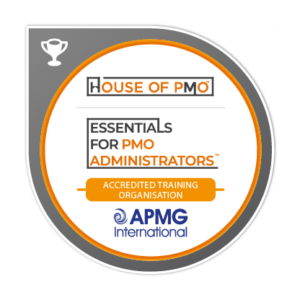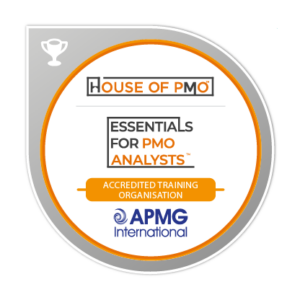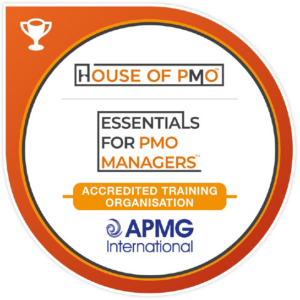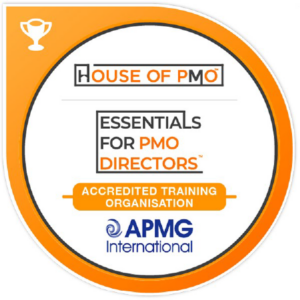
PMO Analysts are often the unsung heroes of the PMO, playing a pivotal role in ensuring the seamless integration of governance, data-driven insights, and project controls. By enabling informed decision-making, optimising delivery efficiency, and maintaining strategic alignment across the portfolio, they provide the backbone of a well-functioning PMO.
It’s a multifaceted role that spans project, programme, and portfolio levels. But beyond supporting individual change initiatives, the PMO Analyst is also instrumental in creating and sustaining the broader ecosystem in which all change activity happens. From governance frameworks and delivery methodologies to capability development and essential tools, they help shape the environment that enables effective project execution and long-term business success.
A successful PMO Analyst isn’t just there to push paperwork—they’re the engine room of the PMO, driving delivery forward, providing trusted insights, and making sense of the data that keeps everything on track. They’re the go-to problem solver, always a step ahead in ensuring projects, programmes, and portfolios stay aligned to business priorities.
Here’s a look at the key competences, knowledge, skills, and behaviours that make them stand out.
 1. Governance & Control: The Framework for Success
1. Governance & Control: The Framework for Success
A strong PMO Analyst ensures that clear governance structures and standards are in place to support effective project delivery. They act as the gatekeepers of consistency, ensuring that all change initiatives follow agreed processes, templates, and best practices.
Key Skills & Knowledge:
- Understanding of project, programme, and portfolio governance frameworks
- Knowledge of P3O®, MoP®, or other industry standards
- Ability to develop, implement, and monitor governance policies
- Expertise in risk, issue, and change control processes
Behaviours:
- Detail-oriented, ensuring adherence to processes without unnecessary bureaucracy
- Proactive in identifying and resolving gaps in governance
- Collaborative, working with project teams to embed best practices
2. Data-Driven Insights: The Power of Information
One of the most valuable contributions a PMO Analyst makes is turning raw project data into actionable insights. Through performance tracking, dashboard creation, and trend analysis, they empower leadership to make informed, evidence-based decisions.
Key Skills & Knowledge:
- Advanced Excel skills and knowledge of Power BI, Tableau, or similar tools
- Expertise in project performance tracking and reporting
- Ability to interpret financials, forecasts, and KPIs
- Strong analytical skills to spot trends and risks
Behaviours:
- Curious and investigative—always asking, “What is the data telling us?”
- Methodical, ensuring accuracy in reporting and analysis
- Able to present complex data in a clear, concise, and meaningful way
 3. Stakeholder Engagement: The Art of Influence
3. Stakeholder Engagement: The Art of Influence
A great PMO Analyst doesn’t just manage data—they manage relationships. They engage with project managers, sponsors, and senior leaders to provide trusted advice, challenge assumptions, and ensure transparency.
Key Skills & Knowledge:
- Strong communication and stakeholder management skills
- Ability to facilitate meetings, workshops, and governance boards
- Conflict resolution and influencing skills
- Understanding of business strategy and how projects align with it
Behaviours:
- Confident, able to engage with senior stakeholders and challenge constructively
- Diplomatic and solution-focused when managing resistance
- A strong collaborator, working across functions to ensure alignment
4. Process Improvement: Driving Efficiency in the PMO
A PMO Analyst is not just there to maintain processes—they are there to improve them. By identifying inefficiencies and recommending smarter ways of working, they help drive continuous improvement across project delivery functions.
Key Skills & Knowledge:
- Lean, Agile, or Six Sigma methodologies for process improvement
- Understanding of automation tools to reduce manual, repetitive parts of the process
- Knowledge of lessons learned and continuous improvement frameworks
Behaviours:
- A continuous improvement mindset, always looking for ways to do things better
- Open to innovation and new technologies that improve efficiency
- Pragmatic—balancing control with agility
 5. Capability Development: Enabling a High-Performing PMO
5. Capability Development: Enabling a High-Performing PMO
One of the PMO Analyst’s most overlooked responsibilities is developing capability within the organisation. They help upskill project teams, embed best practices, and ensure that project professionals have the knowledge and tools they need to do their work.
Key Skills & Knowledge:
- Training and coaching project teams on PMO processes
- Creating guidance materials, templates, and toolkits
- Understanding competency frameworks and career development pathways
Behaviours:
- Supportive and approachable—helping teams navigate PMO processes
- A knowledge sharer—proactively building a culture of learning
- A role model for best practices in project management
The PMO Analyst’s Impact on the Business
A high-performing PMO Analyst doesn’t just support delivery—they enhance it. Their expertise is wide-ranging and not just focused on the support of project and programme delivery. For anyone on doubt about the benefits of the role within the PMO and the wider business, these five areas alone are worth remembering and promoting:
- Stronger governance – Ensuring projects follow best practices
- Smarter decisions – By providing data-driven insights
- Greater efficiency – Through process improvement and automation
- Better risk management – By identifying and mitigating issues early
- Stronger capability – Through coaching and knowledge sharing
Without a skilled and proactive PMO Analyst, PMOs risk becoming inefficient, reactive, and disconnected from business strategy.
 Investing in Your PMO Analyst Career
Investing in Your PMO Analyst Career
For those looking to become a PMO Analyst—or enhance their existing skills—the Essentials for PMO Analyst Course is an ideal stepping stone.
Who is it for?
- Aspiring PMO Analysts
- Current PMO professionals looking to develop their expertise
- Project managers transitioning into a PMO role
Key Takeaways from the Course:
- Understand projects, programmes and portfolios and the role the PMO has in supporting successful delivery.
- Be able to articulate what the different roles are in a PMO and how they relate to each other.
- Understand what is required to perform the role of a PMO Analyst successfully.
- Be able to provide PMO services required to support delivery activities in projects, programmes and portfolios, such as planning, scheduling, risk management, change control, benefits management and risk management.
- Progress career development within project management and the PMO with confidence.
As organisations increasingly prioritise PMOs as a strategic function, the role of the PMO Analyst is becoming more critical than ever. No longer just a support role, the PMO Analyst is a trusted advisor, an efficiency driver, and a catalyst for delivery success.
If you’re looking to elevate your PMO career, there’s never been a better time to invest in your skills and become the powerhouse of your PMO.
>> Explore the Essentials for PMO Analyst Course today












